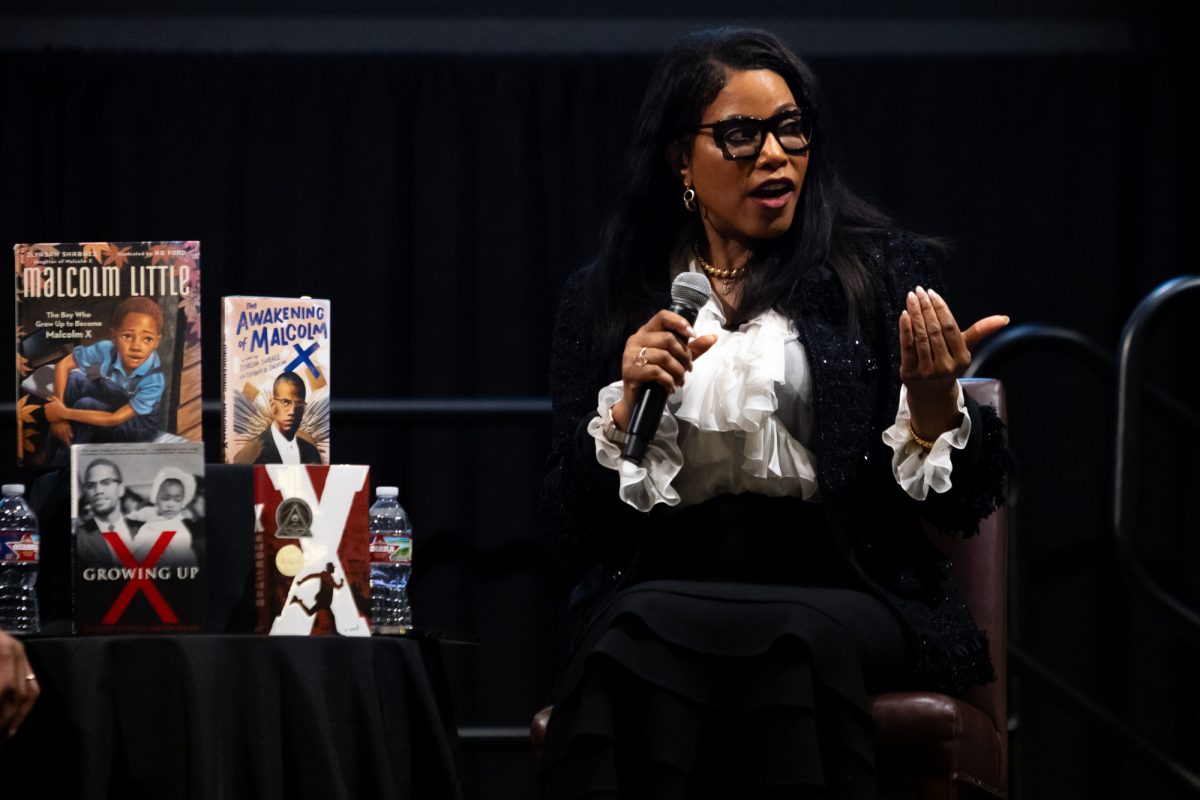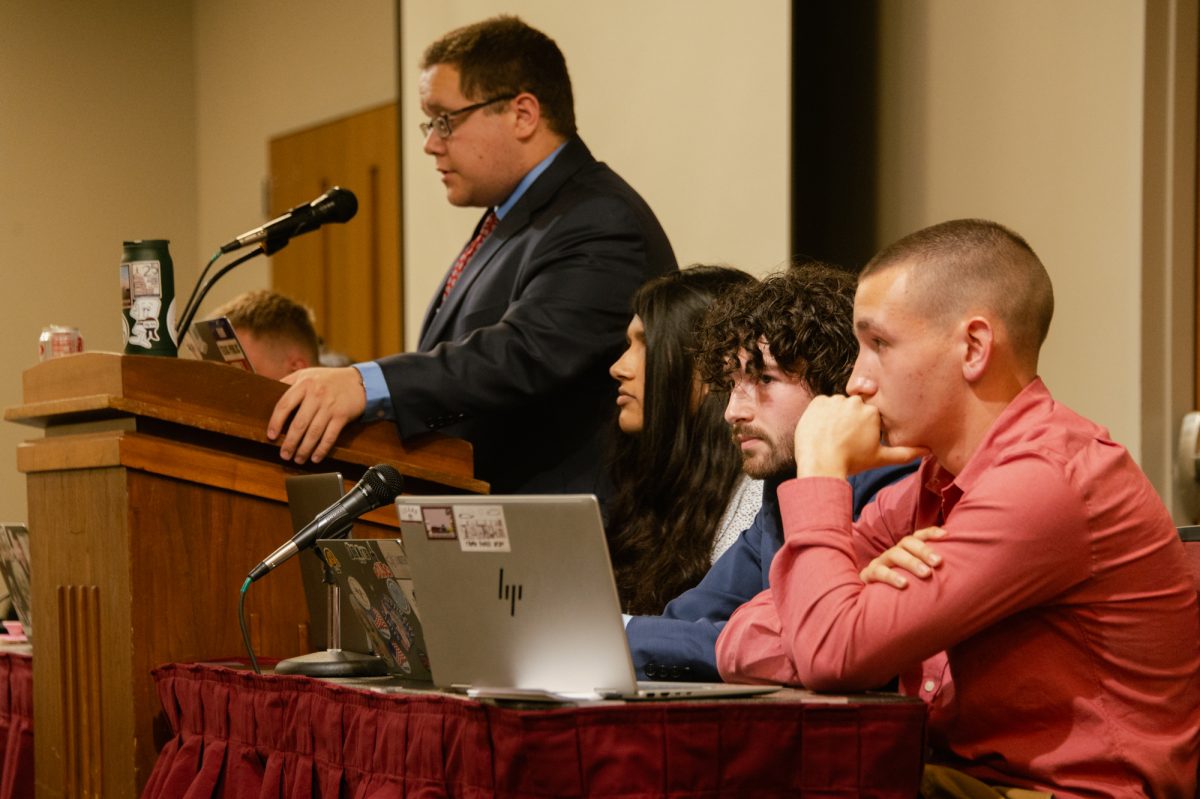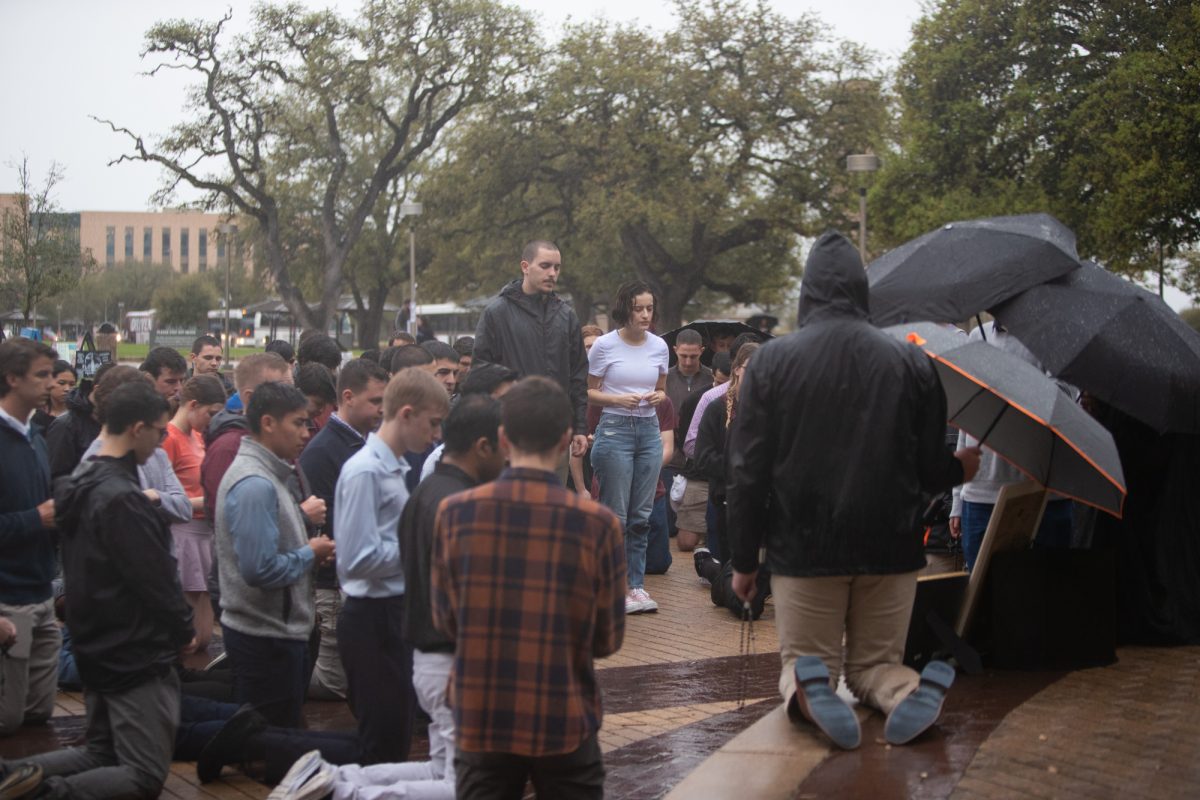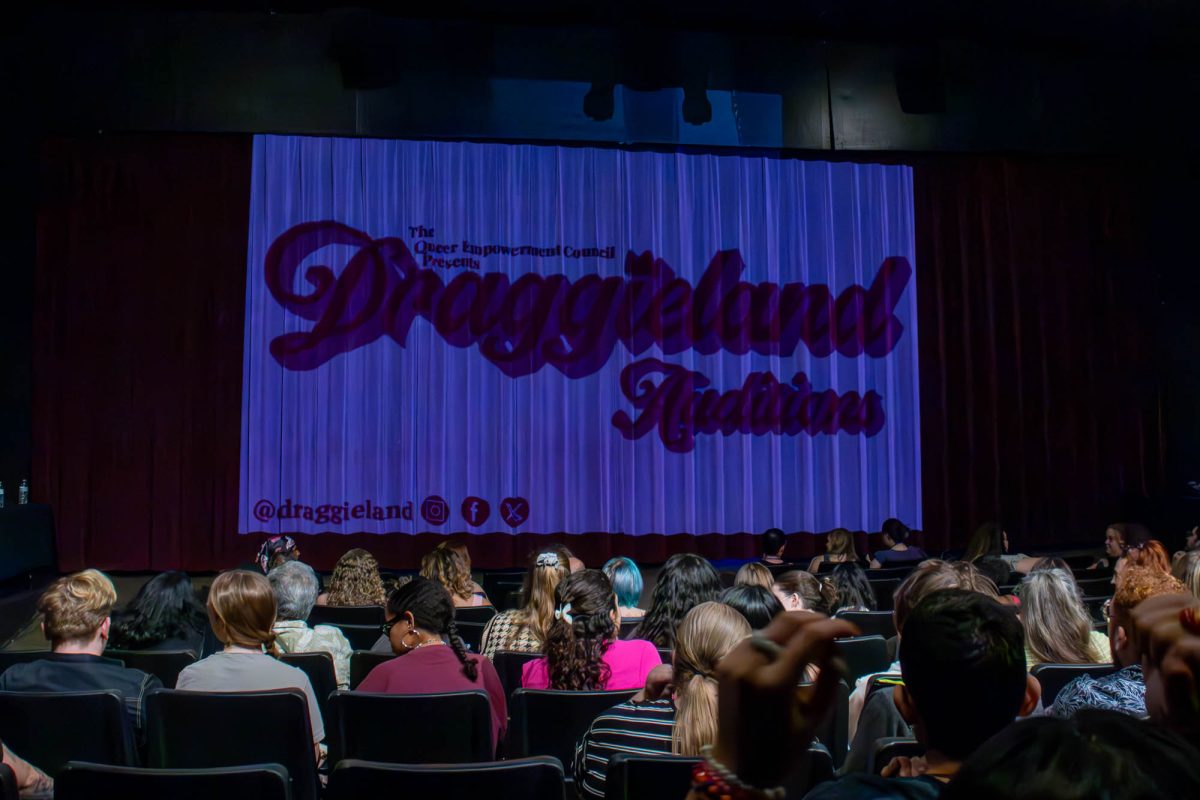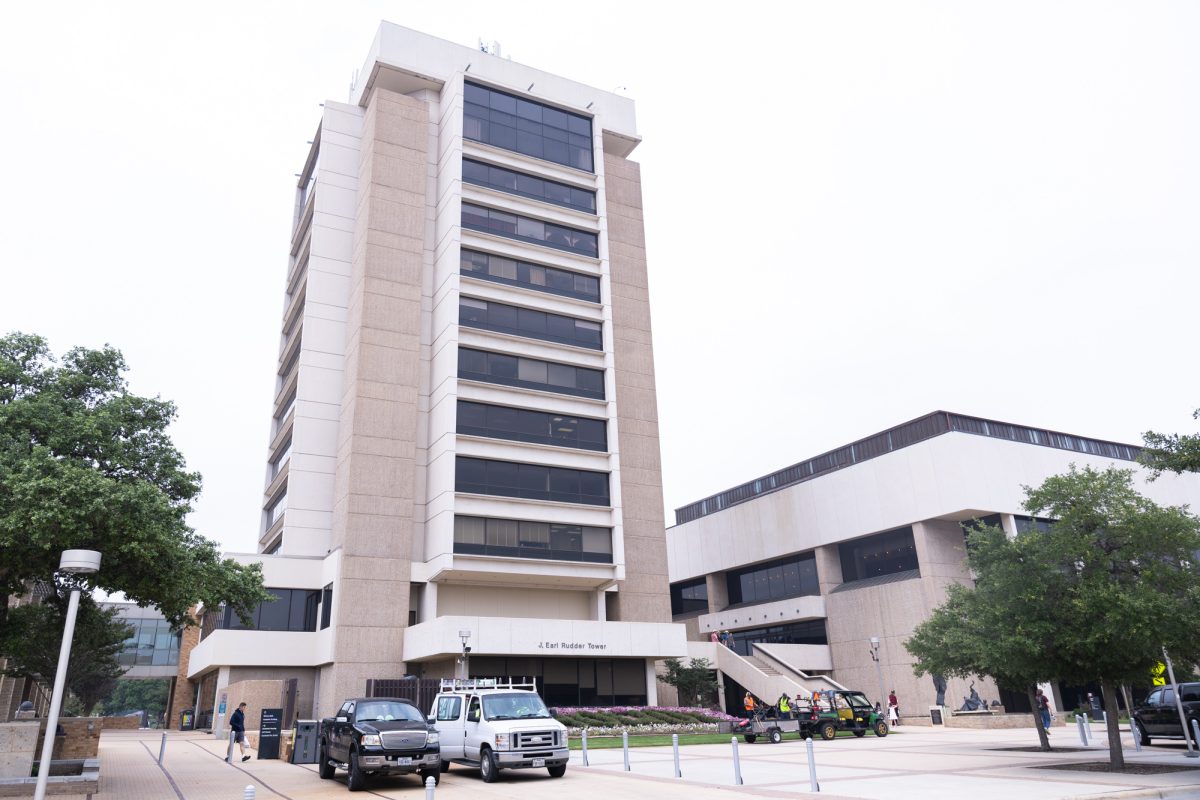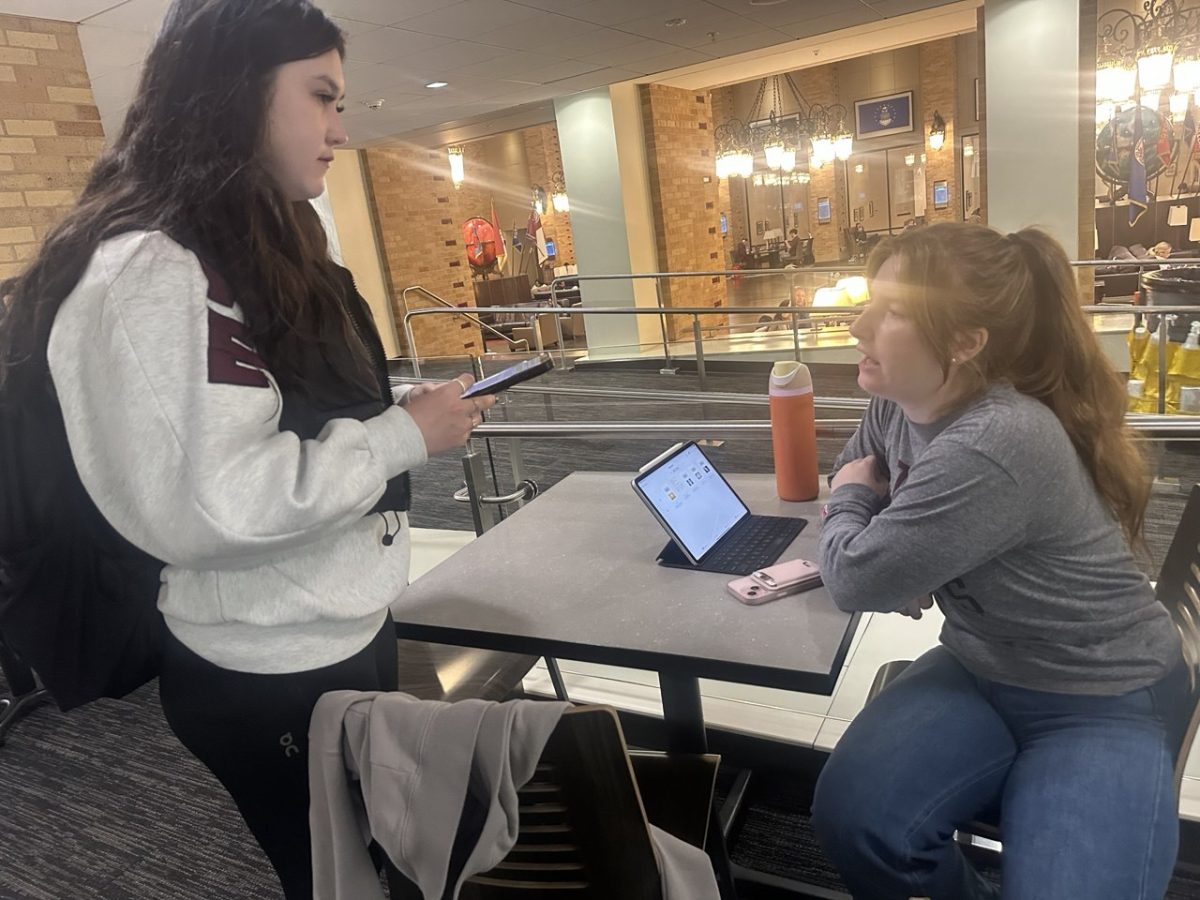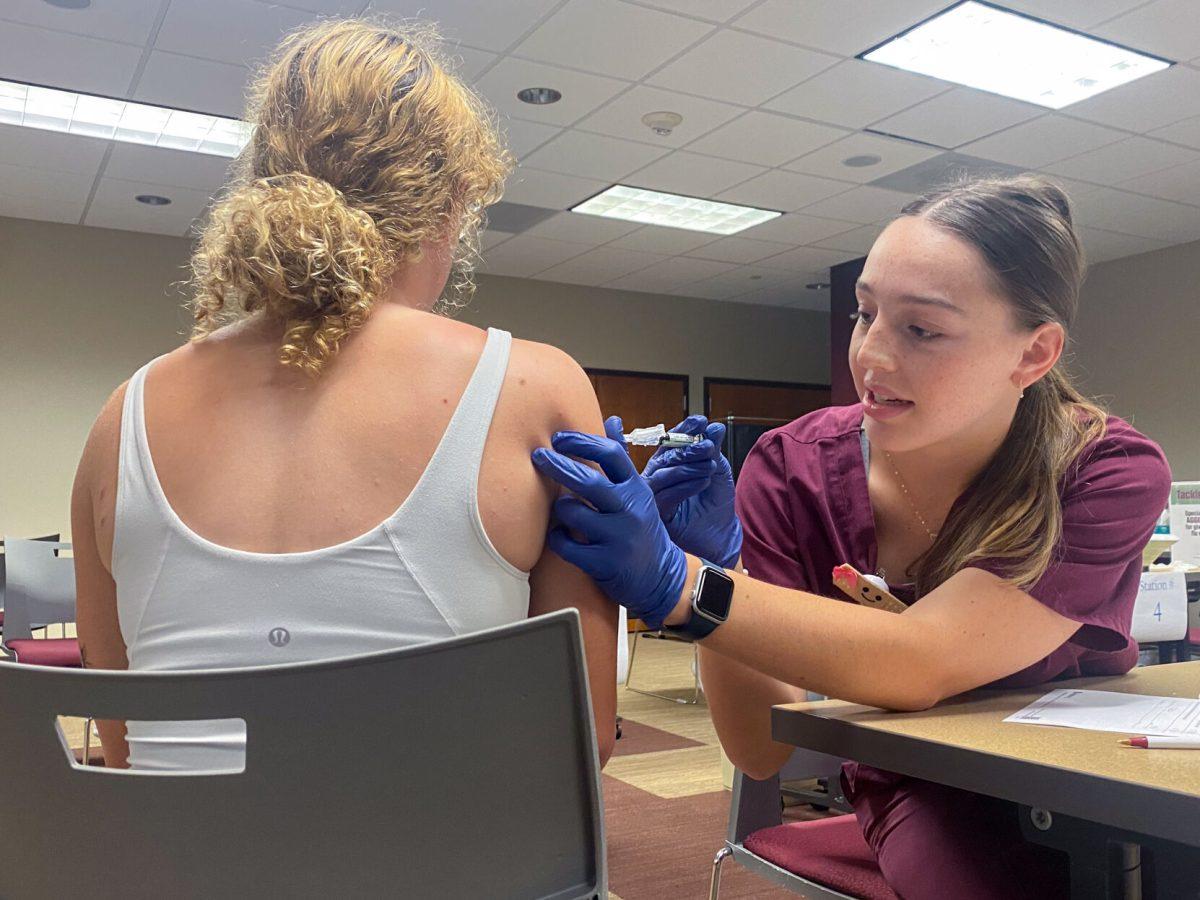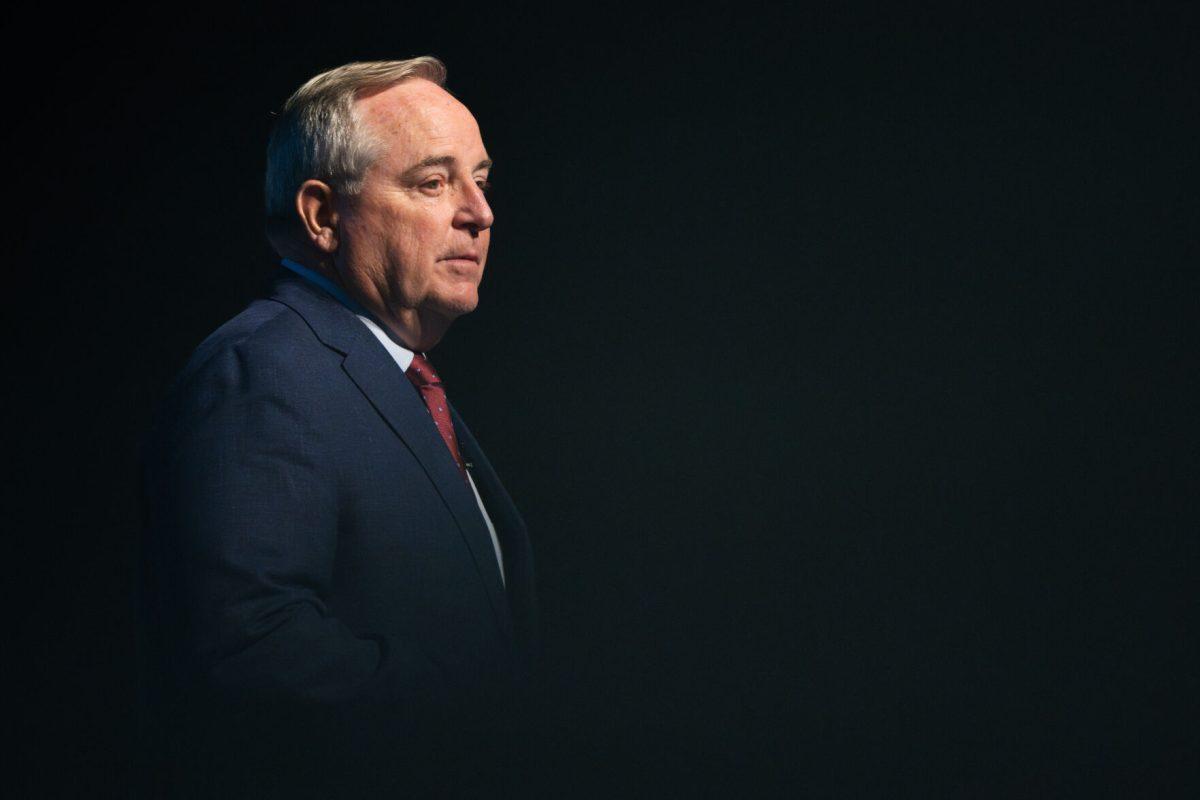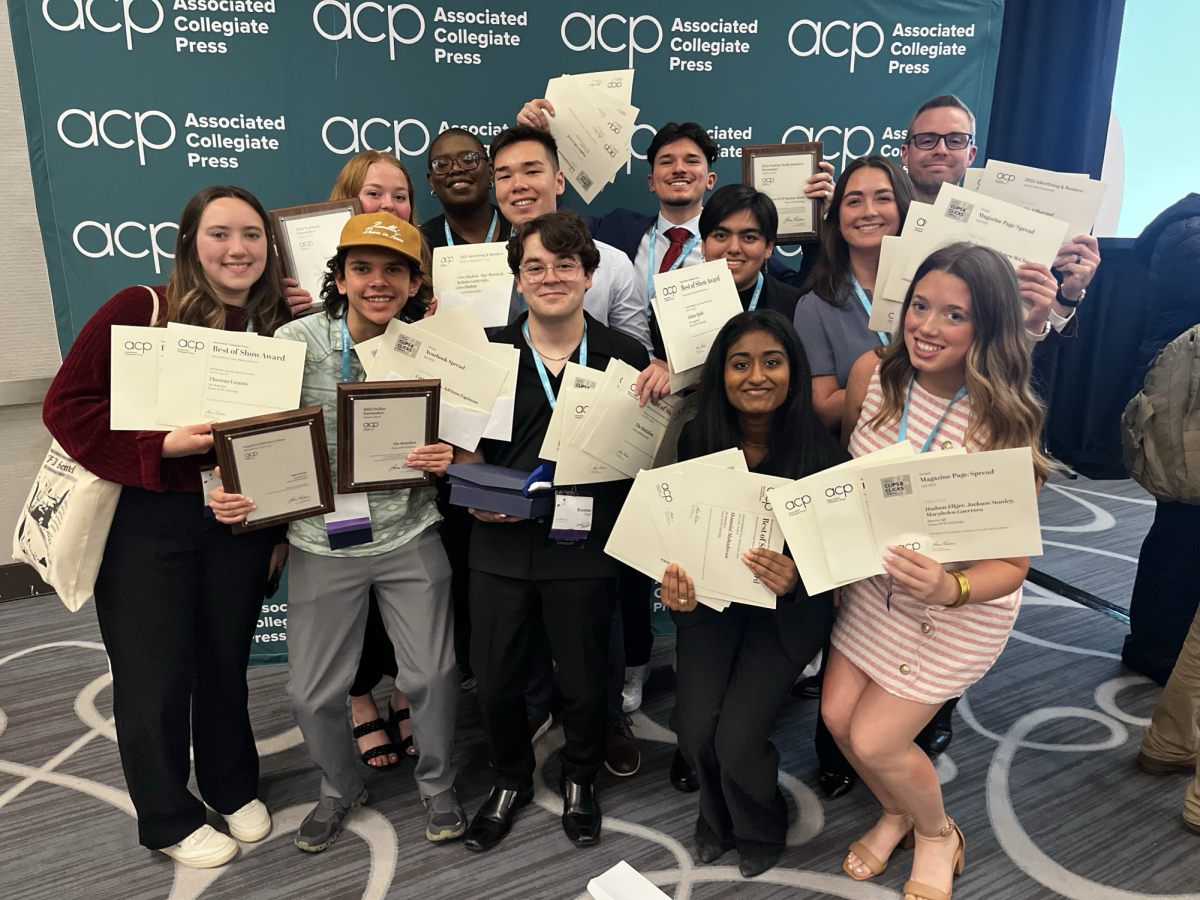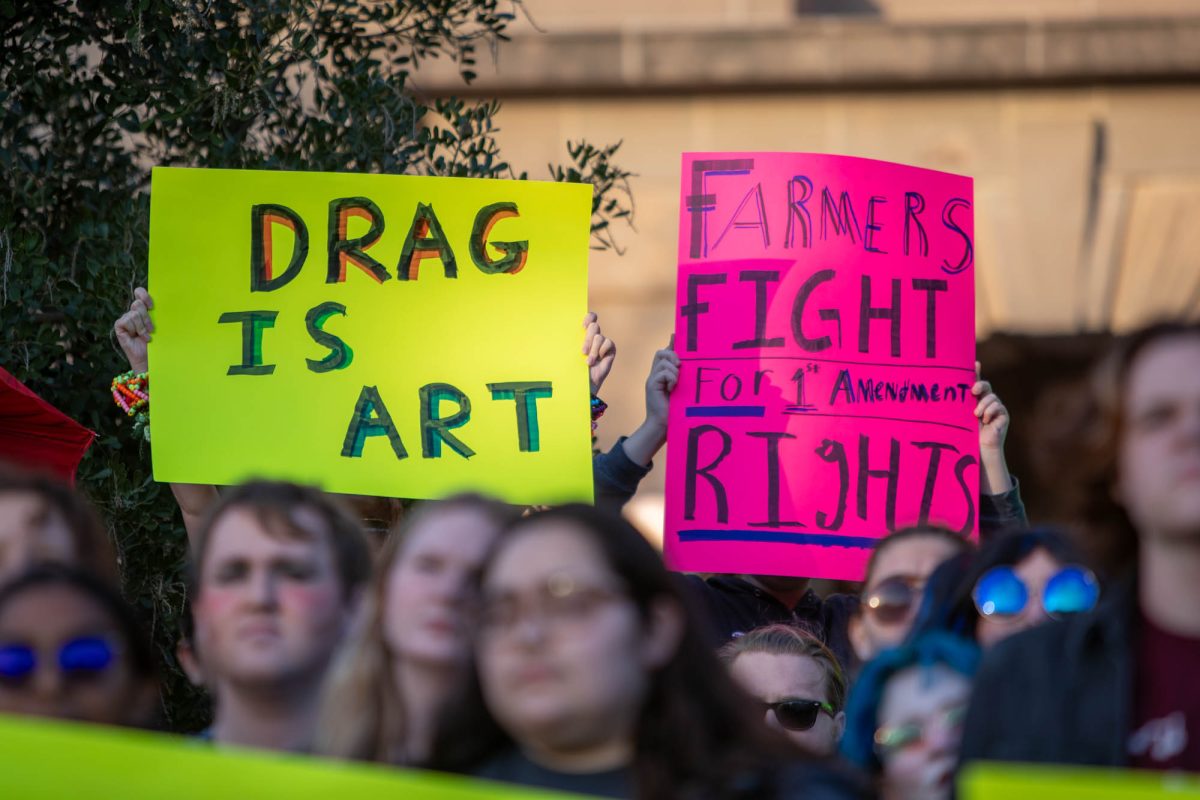For the 18th year in a row, the Memorial Student Center’s Carter G. Woodson Black Awareness Committee hosted the Reverend Martin Luther King Jr. Breakfast at Texas A&M.
The long-standing Aggie tradition brought together renowned figures from the African American community to share their experiences, reflect on their heritage and celebrate the progress made on equality. This year’s honored guest was Ilyasah Shabazz, Malcolm X’s daughter and award-winning author, educator and producer.
Shabazz took the stage to answer questions from attendees and speak about Dr. King’s legacy.
“This day is a special day to honor our ancestors who fought for our human rights,” Shabazz said.
Before dozens of guests in the Bethancourt Ballroom, Shabazz spoke about the balance between recognizing the challenges faced by the African American community with an urgent call to action for the future.
“If you put a knife nine inches and pull it out six inches, that’s not progress,” Shabazz said. “If you take the knife out, that’s not progress. There is still an open wound.”
She urged attendees not to settle for surface-level improvements but to push forward and redraw the lines of progress. She then transitioned the conversation toward self-progress and identity.
“I don’t look at myself as a minority,” Shabazz said. “As a Black woman, those attributes don’t reflect who I am.”
Shabazz shared personal insights rooted in her identity as an African American woman. She was raised by parents who instilled resilience and strength in their six daughters.
“My mother always said to find the good and praise it,” Shabazz said.
She spoke about how her mother, civil rights advocate Betty Shabazz, consistently looked forward and fostered a deep sense of self-assurance in her children.
“I grew up with a great sense of my own identity,” Shabazz said. “Love is a radical virtue to cultivate.”
Shabazz told the audience to look inward and cultivate selfhood as a means to drive progress in the Black community.
“We must establish correct values for future generations to redraw the boundaries of the Black community,” Shabazz said.
As the event drew to a close, she reflected on her passion for helping young people find their voice and understand their history.
“We must make our voices heard,” Shabazz said. “We need to make sure that liberty and justice are for all of us.”
The attendees, representing a diverse mix of ages and backgrounds, responded with a standing ovation. University studies sophomore Amiri Hardy said she was self-reflective after hearing the talk.
“I learned a lot — not just about the speaker, but about myself too,” Hardy said. “The speech was a reflection of how I should think more highly of myself, even when the world may not think so.”
Hardy was struck by the unity she saw in the room.
“It’s amazing to see so many people who look like me, but also so many who don’t, all coming together,” Hardy said.
Amir Jaima, an attending associate professor of philosophy, said he appreciated Shabazz’s words on external validation.
“You can’t depend on others for a sense of self-worth,” Jaima said. “If you define what makes you good, you can fulfill those goals yourself.”
But what resonated with Marriott Valcini Jr., the breakfast’s special projects director and an English professor, was Shabazz’s emphasis on the value of education and self-love.
“That’s something everyone should take away from this speech,” Valcini Jr. said.




